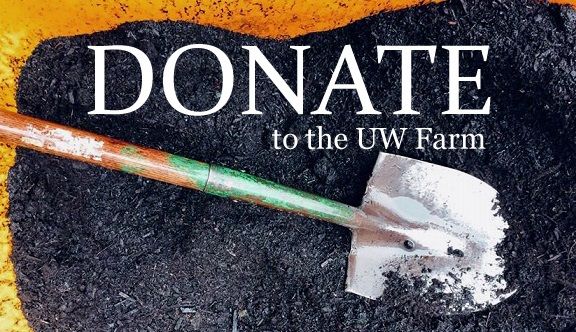|

Help The Farm Grow!
Every year, we have the capacity to grow more food and increase our educational and research program at the UW, but not without your support. Every contribution goes to work immediately, helping us better serve students. Your support can sustain our momentum and help seed new opportunities for student internships, academic work, and future growth. Please consider making a gift to the Farm online
|